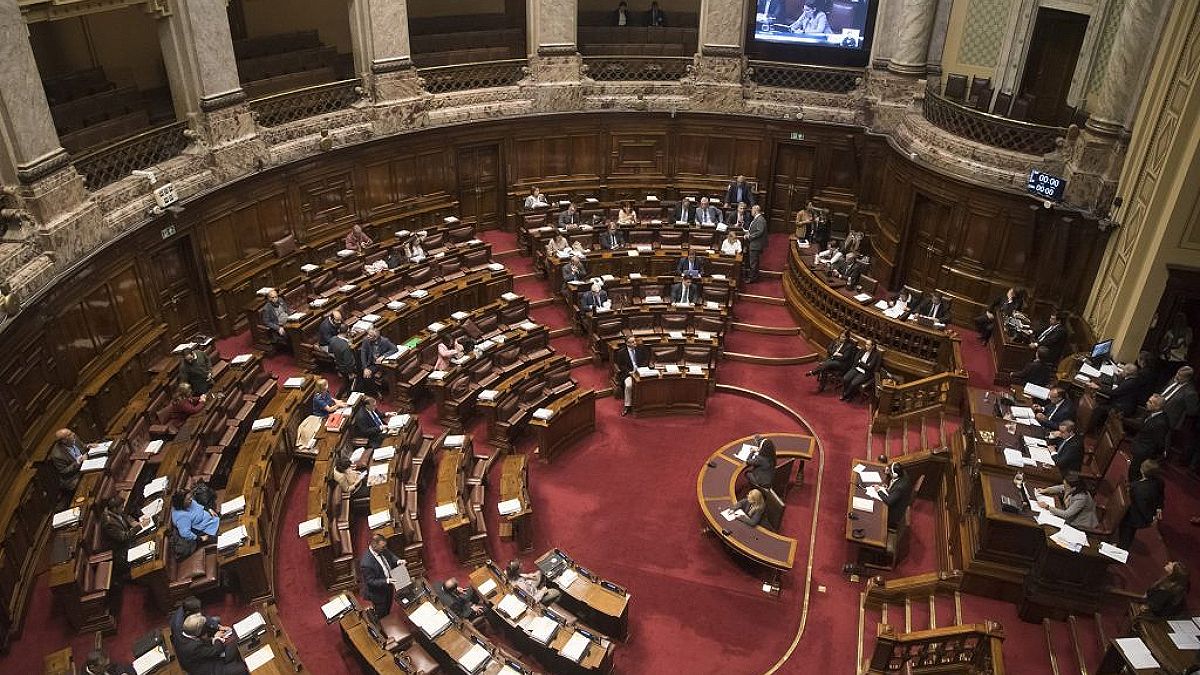The Chamber of Deputies approved with some tensions in the room the bill that modifies the usury law of the first government of Broad Front, and that imposes a limit on interest rates in the credits granted by banks and financial institutions in Uruguay.
After it was announced as the first major consensus after the treatment of Urgent Consideration Law (LUC)and after intense negotiations between all the parties to obtain the votes that also implied modifications during its treatment in the Finance Commission; The Lower House generally approved the project whose drafting was in charge of the deputy of the People’s Party, Daniel Peñaand that was stuck for more than three years.
His treatment itself generated surprise among some sectors such as Town meeting that, despite accompanying the initiative—unlike what happened in commission and despite carrying out its own measure against usury, in the form of the campaign to gather signatures for the plebiscite—, pointed out the way in which that “was expressly unfiled” and the lobbyists were not taken into account for the treatment, as he considered Alvaro Perrone.
“The project comes out because the meeting of signatures that Cabildo Abierto is holding is taking place in the street, a true limit on usury, not like this project in which there is not really an important limit“he added.
What changes does the project propose?
Although it is now in charge of the Senate, the project approved in the Deputies has among its most important changes that the Central Bank of Uruguay (BCU) “shall exclude” from the calculation of the average interest rates —with which the rates that banks apply to consumption are then defined— “those credit operations” that, in their opinion, “distort the market” and “in particular” those credits that correspond to the credit administrators. An additive added in the plenary session establishes that banks are obliged “to report the data without the aforementioned distortions.”
The premise behind this modification is that private banks are, for the most part, owners of the credit administrators which usually have higher rates, because they are working with a higher risk segment. Therefore, the objective is that the report of these financial companies does not impact the preparation of the average rate, as they raise the average. “It will cause a significant reduction in average rates, which will also contribute to reduce usury cap“, maintains the explanatory statement of the project.
Other substantial changes are new maximum limits on usury, admitting up to a 30% above of the average reported by the BCU in the sectors with the lowest risk and up to 55% for higher risk debtors. In the event of default, usurious interest will be considered to exist when a 50% percentage in debtors with lower risk and 75% in the remaining segments.
Other novelties are that the credit is not allowed to be enforced until the 120 days from non-compliance with the last installmentconsidering that with current regulations it is enough to delay one installment for 100% of the credit to be required.
The tensions through the joint
Although all political parties supported the project at a general level, at the time of voting on the articles, the differences were noted, above all, in the National Party, whose legislators entered the premises with the recommendation of the president of the BCU, Diego Labat, of not accompanying the most sensitive points of the project.
Along the same lines, both Administration of Bank Employees of Uruguay (AEBU) as private banks previously warned that capping rates can lead to restricting credit and pushing the neediest into a dangerous informal market.
Still, there were white deputies who gave their support to the central articles to reduce interest rates, such as Alvaro Viviano (For my country), Marcos Portillo and Carmen Tort (Best Country), Nancy Nunez (National Alliance) and Alexandra Inzaurralde (Blacksmithing), among others.
For their part, the deputies of the 404, among them Pedro Jisdonian, They did not accompany. Neither did the independent Ivan Posada.
Viviano, who in commission worked side by side with Posada in drafting the project, sent a message critical of the government and Labat himself regarding how they handled the issue: “When the project came out of commission all the lights came on, that hadn’t caught fire in four years,” he said. He also argued that in a country with a inflation of less than two digits, charge triple digit rates “It is a real scam for the citizen.”
He Colorado Party, Meanwhile, it supported the new interest caps, although it rejected the provision referring to the new way of reporting average interest rates. Finally, Town meeting It even supported sensitive articles, although it presented additives, with even more restrictive measures.
Source: Ambito




